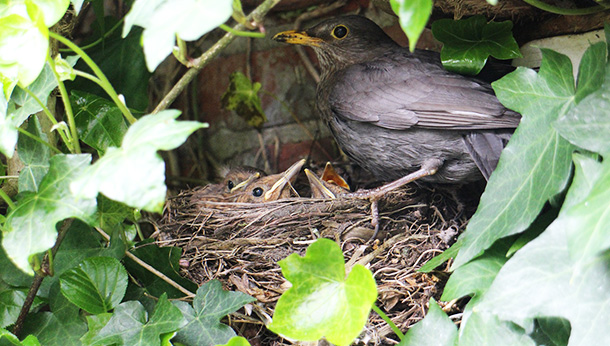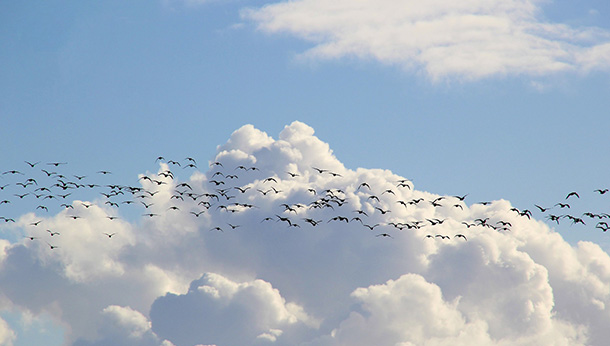There’s always more than meets the eye when you encounter a lonely baby bird. Your natural instinct might be to take it under your wing, so to speak, to take it to the vets or interfere with its natural course of life. Sometimes this is necessary but more often than not, the kindest thing to do when you encounter a baby bird is to leave it well alone… they often aren’t as helpless as we think!
Going against your natural instincts
The term ‘fledgling’ refers to a young bird that has ‘fledged’ its nest but is not yet able to fly. Odd as it may sound, this process is perfectly normal. Some young birds leave their nest when they are fully feathered and live on the ground until they’re able to take flight.

Feathered vs. un-feathered
If you find a feathered chick in your garden, the best thing to do is to leave it well alone. It’s simply going through a natural phase of its life. What you can do to help the fledgling is keep your pets – particularly cats – well away from it. Consider keeping them inside for a day or two, a fledgling won’t spend long on the ground before they’re ready and able to fly.
There are exceptions to the rule. If you find a young bird by the side of a busy road, for example, you can move it further away to somewhere they’re less likely to be trodden on. Bear in mind, however, that just because you can’t see the young bird’s mother, it doesn’t mean she’s not there! She may be off gathering food or simply keeping a watchful eye from her hiding place.
Un-feathered chicks are unlikely to leave their nest deliberately. If you find one and it’s obvious that it’s fallen out of the nest by accident, the best thing to do is to put it back. If you can put it back of course, and providing you’re certain it’s going back in the right nest!
Removing a bird from their natural habitat
If you find a bird that is injured or otherwise unable to return to its nest, contact us as soon as you can.
Once a bird has been removed from its natural habitat, it is likely to need human care and intervention for the rest of its life. With this in mind, make sure that the fledgling definitely needs you to intervene before you do so.

The golden rule is: if the bird is fully feathered, it will have left its nest deliberately and probably just needs you and your curious pets to keep out of their way for a day or so. If you find an injured bird, contact us or an expert rehabilitator as soon as you can.